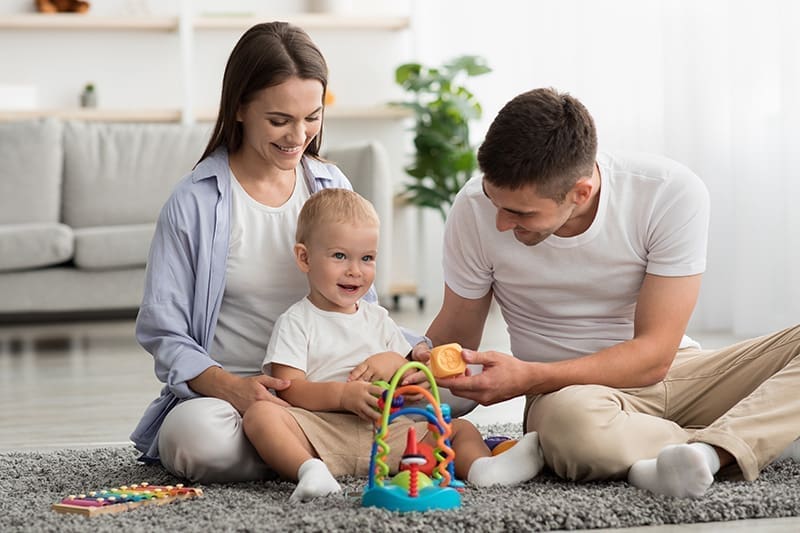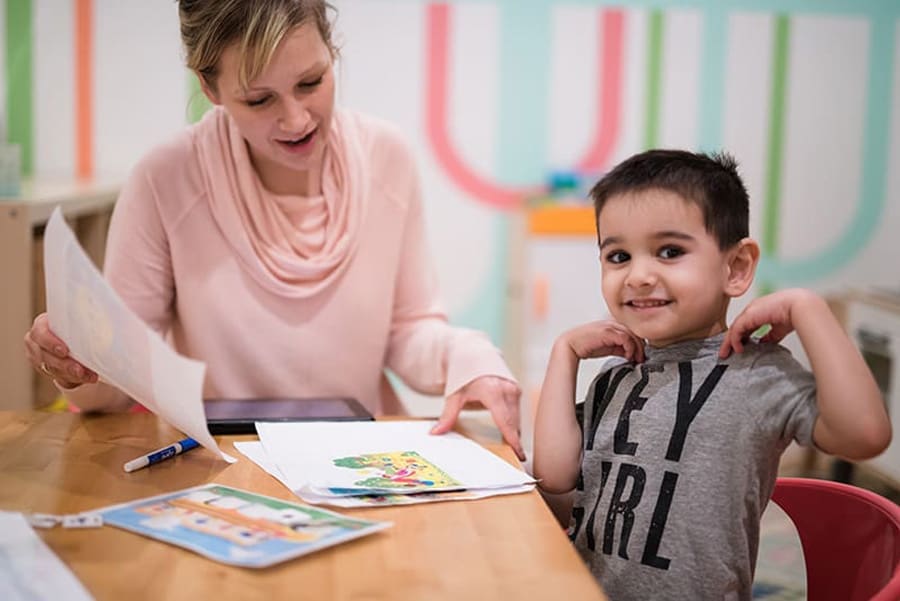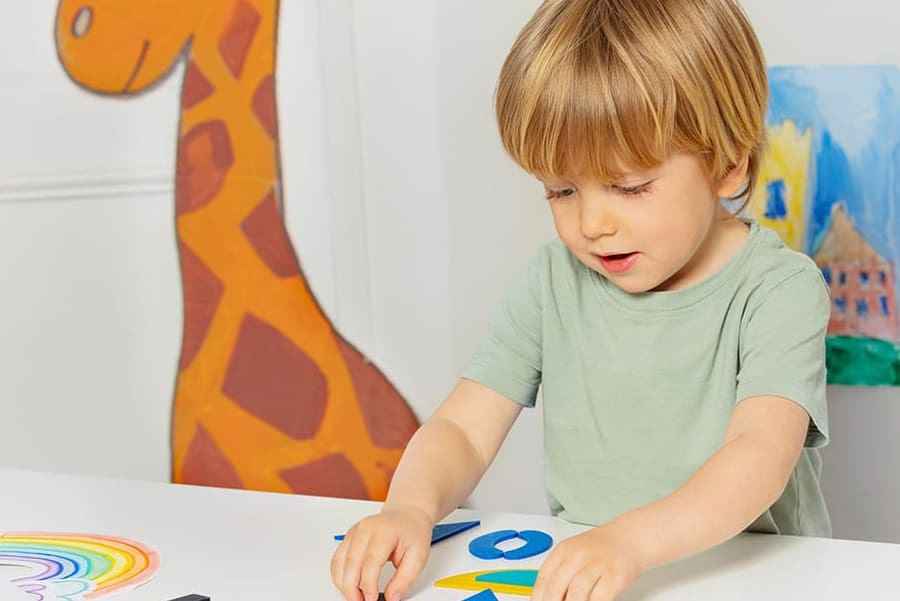Social Communication Support at CST Academy
Building Stronger Connections. One Interaction at a Time.
At CST Academy, our pediatric speech therapy services include specialized support for social communication—also known as pragmatic language skills. These are the unspoken rules of conversation and interaction that help children connect, participate, and thrive in everyday social settings. Whether your child is having trouble making friends, reading social cues, or knowing how to join a group activity, our licensed speech-language pathologists are here to help.
Get Started
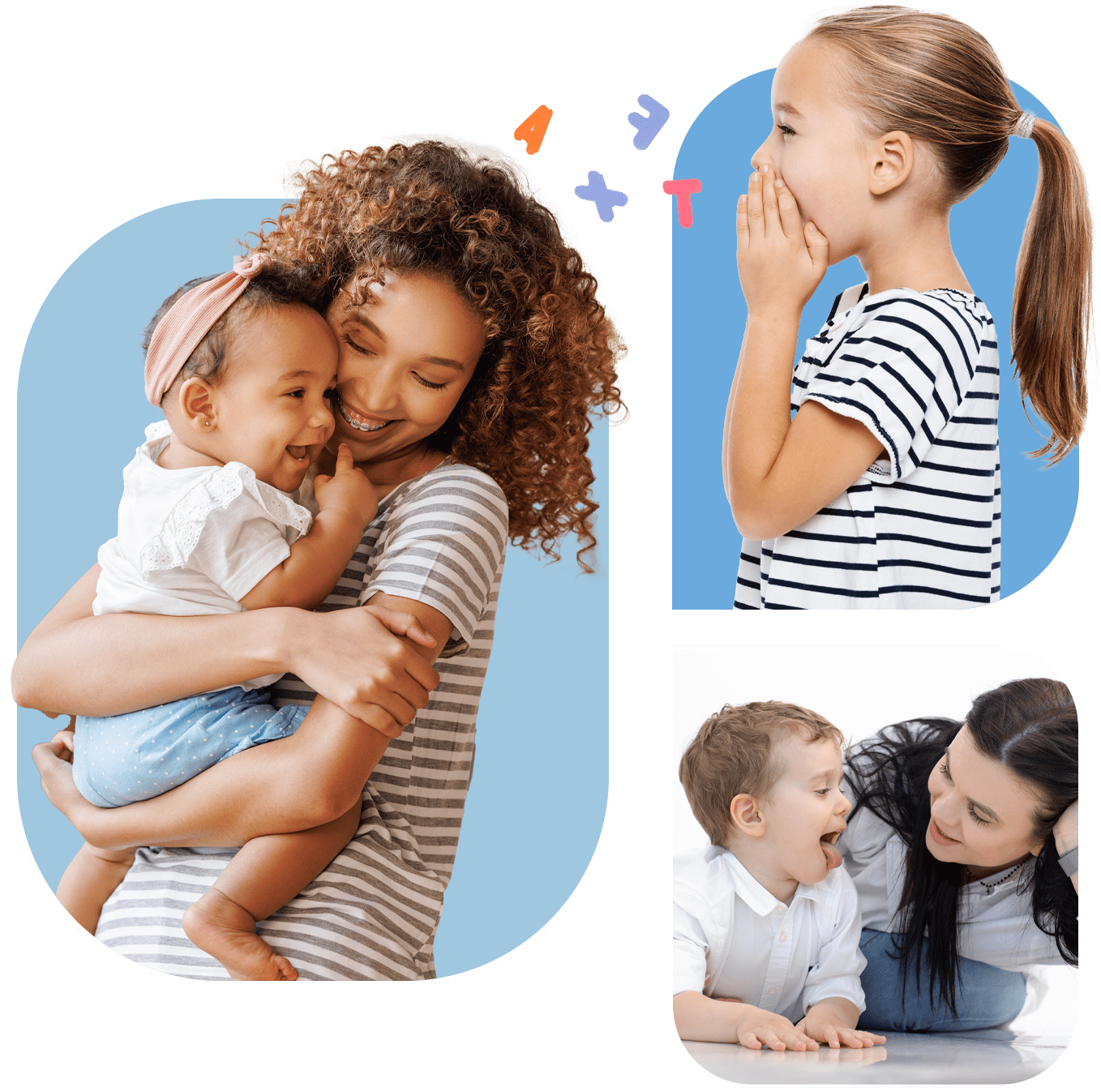
What Is Social Communication?
Social communication includes the skills we use to interact appropriately with others—knowing what to say, how to say it, and when to say it. This involves verbal and nonverbal communication, including eye contact, tone of voice, facial expressions, and body language.
At CST Academy, we create personalized therapy plans to help children improve their social awareness, confidence, and participation across a variety of real-world settings. We work on building these skills in one-on-one sessions, group environments, and even classroom-style activities.
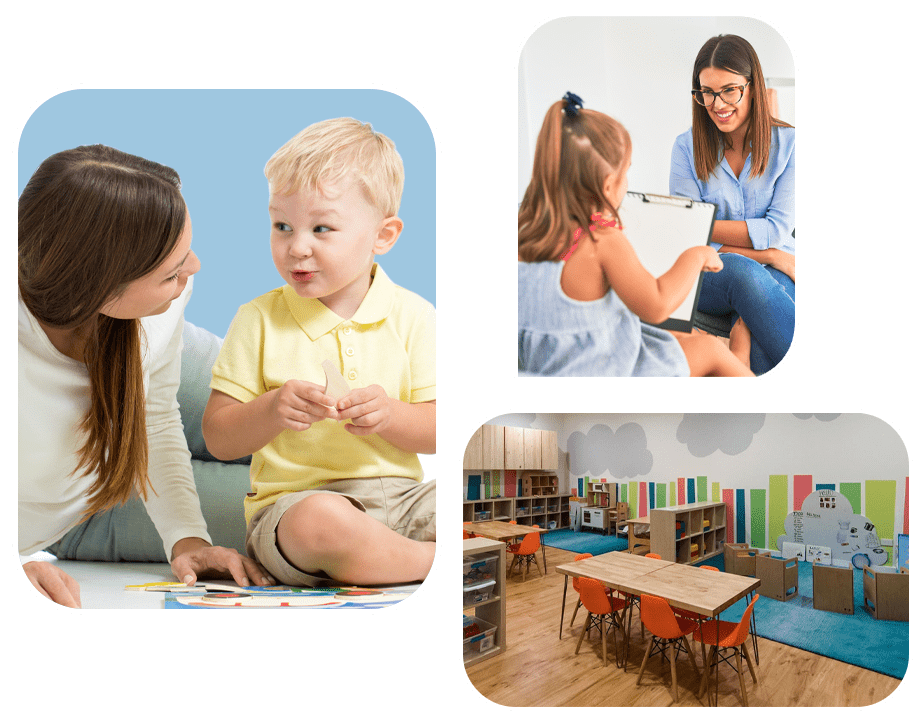
Why Choose CST Academy for Social Communication Support?
What sets CST Academy apart is our integrated, whole-child approach. Our speech-language pathologists work closely with ABA therapists, occupational therapists, physical therapists, and feeding specialists—all under one roof. This coordinated care helps ensure that each child’s social communication goals are reinforced across therapies and environments.
We also partner closely with parents, offering guidance, updates, and real-life strategies to help families support their child’s progress beyond the therapy room.
We also partner closely with parents, offering guidance, updates, and real-life strategies to help families support their child’s progress beyond the therapy room.
The CST Academy Difference
Choosing the right provider for social communication support means finding a team that truly understands the nuances of how children connect, interact, and build relationships. At CST Academy, we go beyond teaching basic conversation skills—we create joyful, real-life opportunities for children to grow their confidence, learn social rules, and engage meaningfully with others. With experienced therapists, collaborative care, and a warm, play-based setting, we help every child feel seen, supported, and excited to connect.
Helping Your Child Connect With Others
At CST Academy, our social communication support helps children build the foundational skills they need to connect meaningfully with others. Whether your child struggles with initiating conversation or understanding nonverbal cues, we focus on fostering authentic, confident interactions that carry over into everyday life. Here are the core areas we support:
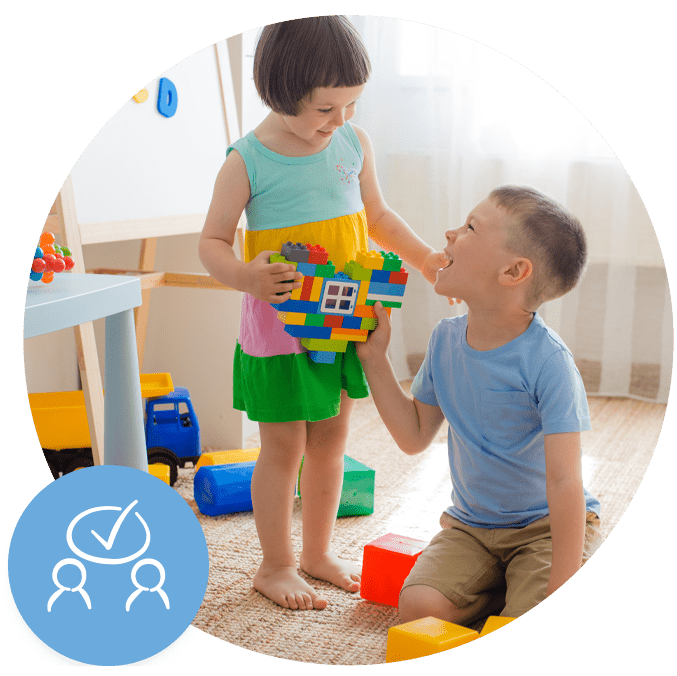
Initiating and Maintaining Conversations
We teach children how to start, maintain, and end conversations in age-appropriate ways. This includes practicing greetings, asking and answering questions, and staying on topic during interactions with peers and adults.
Understanding and Using Nonverbal Communication
Nonverbal skills like eye contact, facial expressions, body language, and gestures are essential for effective communication. We help children recognize and use these cues to better understand others and express themselves more clearly.
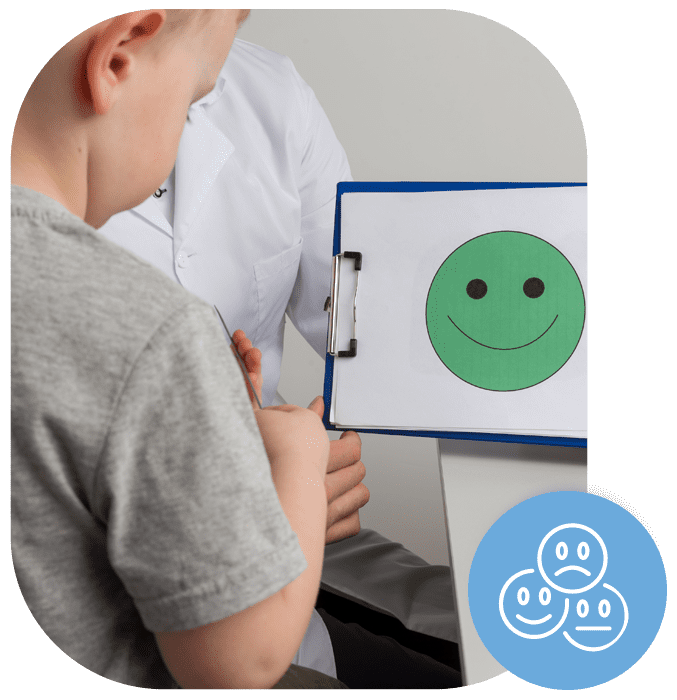
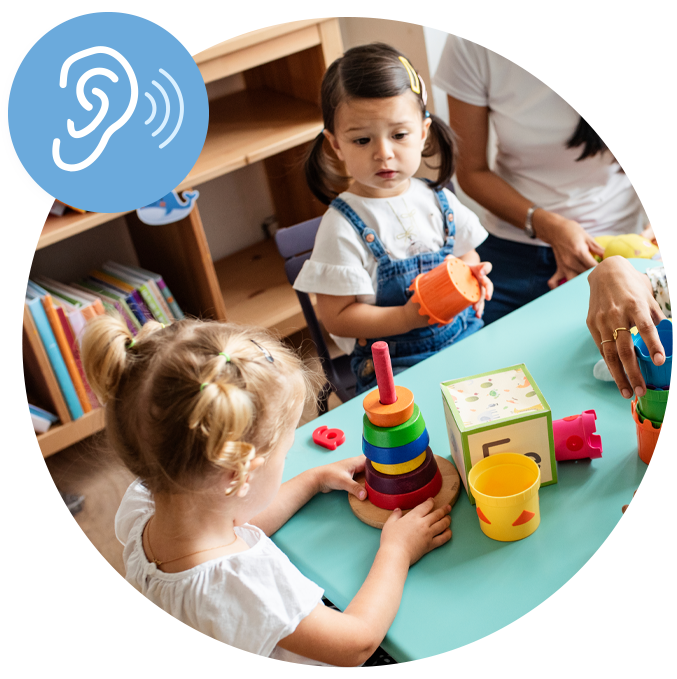
Taking Turns and Listening
Learning when to speak and when to listen is critical in social settings. We guide children through turn-taking in conversation and play, helping them develop patience, perspective-taking, and active listening skills.
Recognizing Social Cues and Rules
We help children learn how to interpret subtle social signals, such as tone of voice or personal space, and understand the unspoken “rules” of interaction. This builds awareness and helps reduce misunderstandings in group or peer settings.
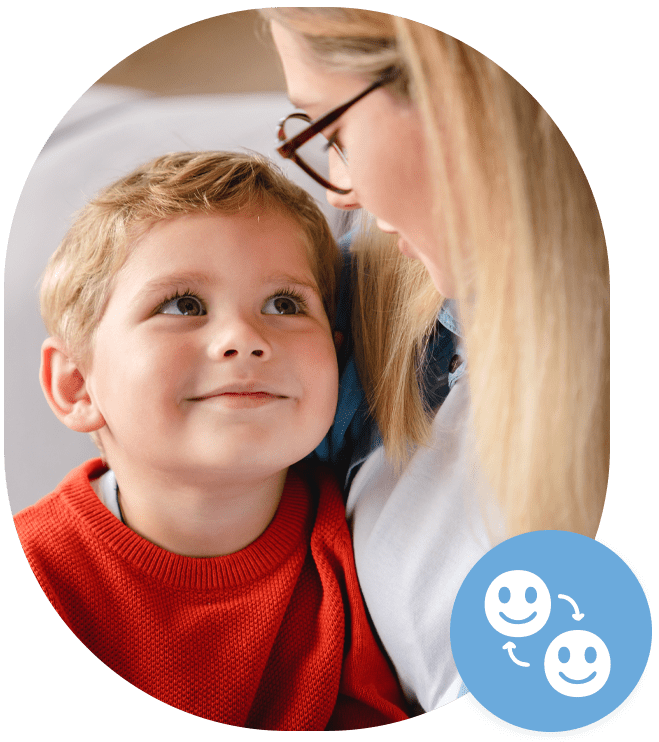
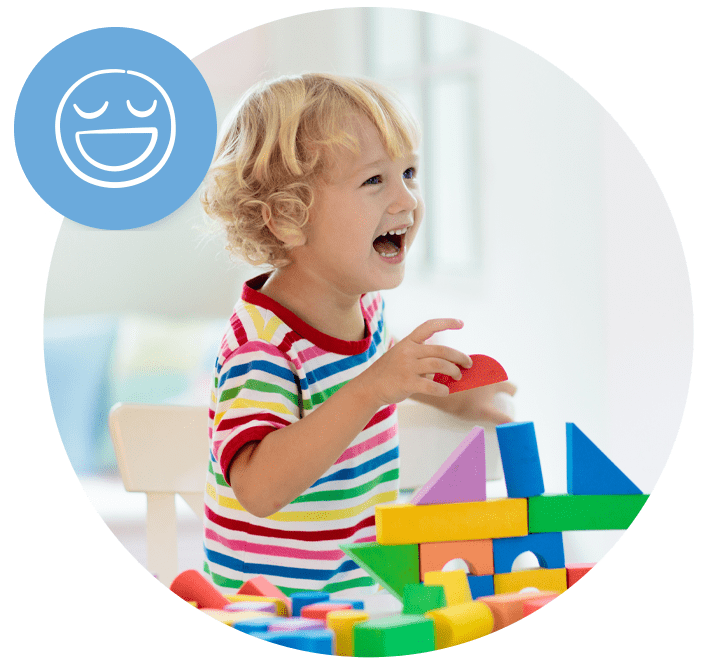
Understanding Emotions in Themselves and Others
Emotional insight is a key part of social development. We help children identify their own feelings, recognize emotions in others, and respond appropriately with empathy, kindness, and confidence.
Problem-Solving and Conflict Resolution
We support children in managing social challenges, such as disagreements, misunderstandings, or peer rejection. Our therapists provide coaching and practice for resolving issues calmly and constructively.
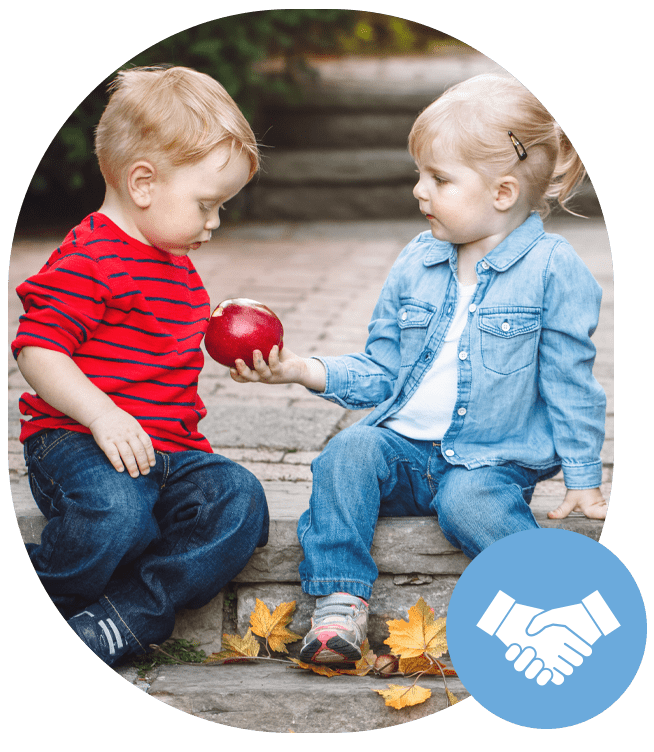
Start Your Journey with CST Academy Today
Getting started is easy. Our team is here to listen, guide, and create a care plan tailored to your child and your family.
"*" indicates required fields
When to Seek Support for Social Communication Challenges
Here are some signs that may indicate it’s time to seek an evaluation or begin social communication-focused therapy. Every child develops at their own pace, but early support can help your child build stronger connections and navigate the social world with more confidence.
Limited Interest in Interacting with Peers
If your child avoids playing with other children, seems uninterested in group activities, or struggles to form friendships, they may need help developing the skills to engage socially.
Difficulty Starting or Maintaining Conversations
Children who rarely initiate conversations, give one-word responses, or jump topics without context may benefit from support to develop age-appropriate conversational skills.
Trouble Understanding Nonverbal Cues
Missing or misinterpreting facial expressions, tone of voice, or body language can impact your child’s ability to connect with others and respond appropriately in social situations.
Challenges with Turn-Taking and Sharing
If your child has difficulty waiting their turn, taking part in back-and-forth dialogue, or sharing during play, these could be signs of a delay in social-pragmatic skills.
Inappropriate Responses in Social Settings
Laughing at the wrong time, speaking too loudly or softly, or not understanding personal space are examples of behaviors that may signal a need for social communication support.
Struggles with Perspective-Taking or Empathy
Children who have trouble understanding how others feel, or who seem unaware of how their words and actions affect peers, may benefit from guidance in social-emotional understanding.
A Place Where Meaningful Connections Begin
At CST Academy, we believe every child deserves the tools and confidence to connect with others and feel seen, heard, and valued. Our social communication support services are rooted in the understanding that language is more than words—it’s how we build relationships, share joy, and navigate the world together. Whether your child is learning to take turns in conversation, interpret facial expressions, or make their first friend, we’re here to guide them with compassion and expertise.
We create an environment where children feel safe to explore social interaction at their own pace. Our team celebrates every success—big or small—and works closely with families to make sure support continues at home and beyond. At CST Academy, we don’t just work on skills—we help children build lasting confidence, joyful connections, and a true sense of belonging.
We create an environment where children feel safe to explore social interaction at their own pace. Our team celebrates every success—big or small—and works closely with families to make sure support continues at home and beyond. At CST Academy, we don’t just work on skills—we help children build lasting confidence, joyful connections, and a true sense of belonging.
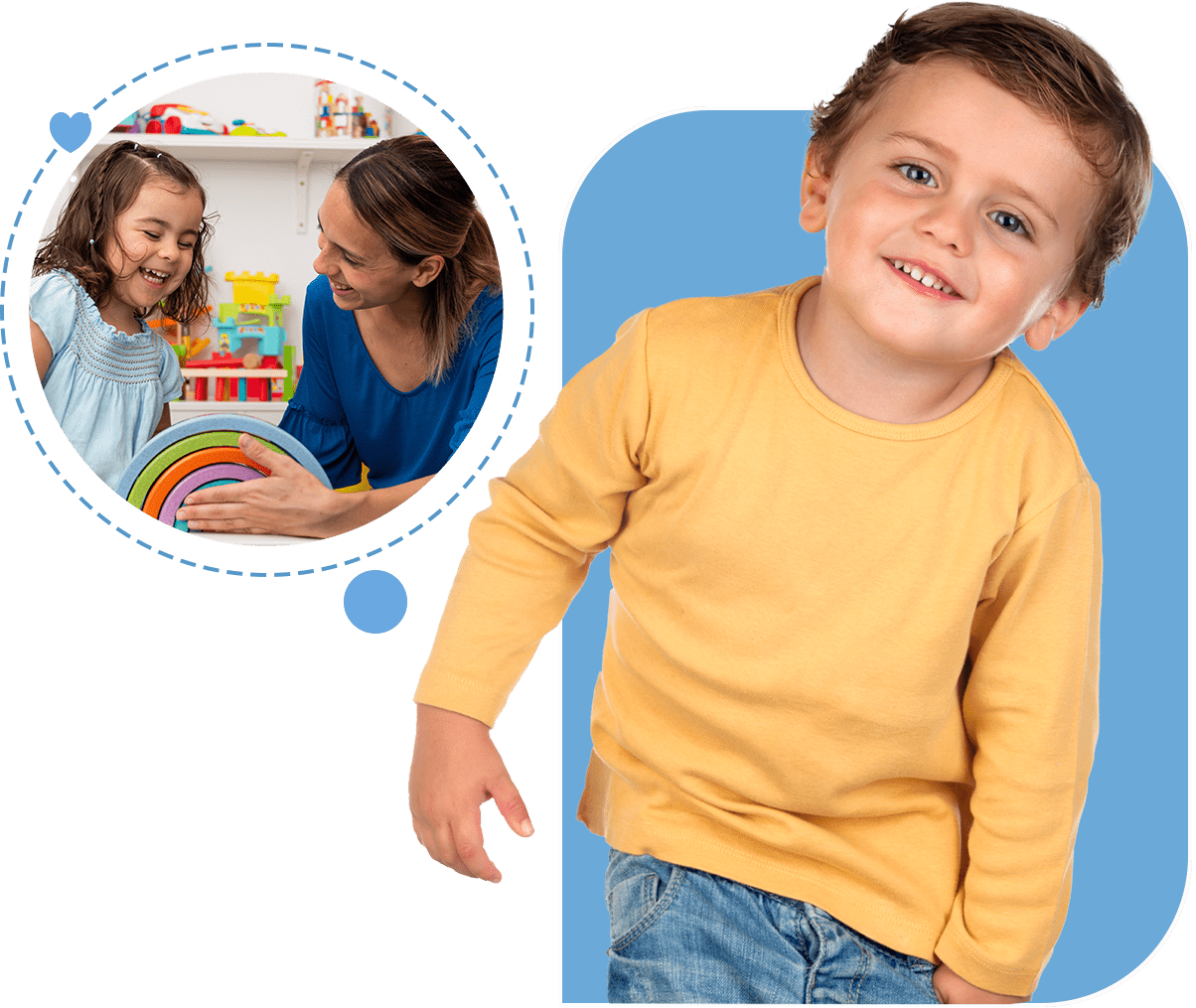
What Families Are Saying About
CST Academy’s Social Communication Support
We were really concerned that our daughter wasn’t connecting with other kids or making friends at preschool. CST Academy made us feel heard from day one. After just a few months of focused speech therapy, she’s now initiating play, using her words, and even helping other kids feel included.
– Emily R.
Our son used to completely shut down during social situations. He didn’t know how to join conversations or even greet someone. CST Academy helped him gain the confidence and skills to connect with peers, and now he looks forward to playdates instead of avoiding them.
– Marcus T.
CST Academy gave our child the tools to understand social expectations that used to feel overwhelming. The therapists are incredibly thoughtful, patient, and creative. We’ve seen so much growth not just in communication, but in his overall happiness.
– Dana L.
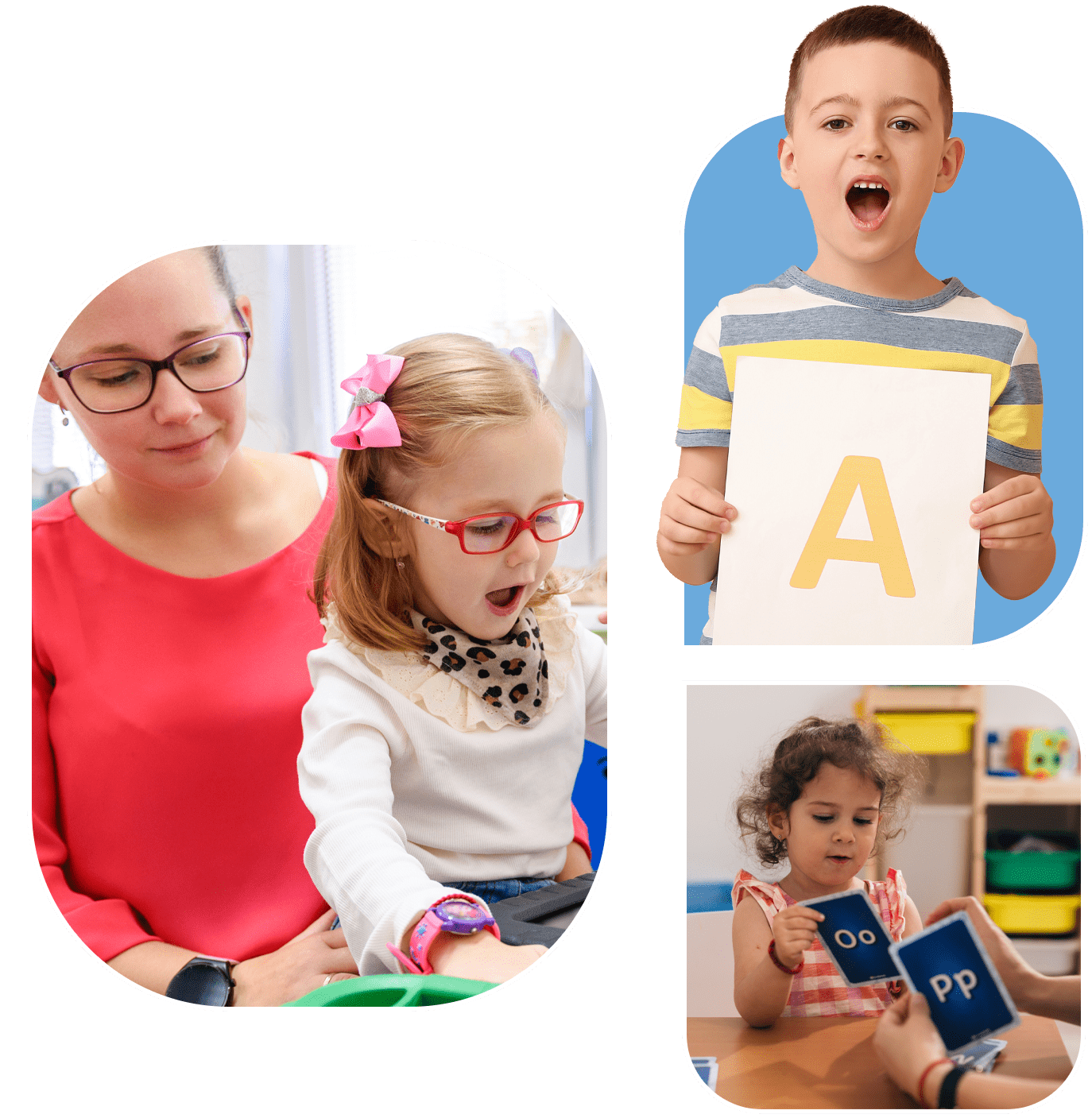
CST Academy Speech Therapy for Social Communication Skills
Fostering Meaningful Interactions and Stronger Social Connections
Social communication challenges can affect a child’s ability to engage with others, understand social cues, and build lasting relationships. CST Academy’s Speech Therapy program offers targeted support to help children improve their conversational skills, perspective-taking, and nonverbal communication. With a warm, structured approach, CST Academy helps children develop the confidence and tools they need to connect and thrive in social settings.
Speech Therapy
Get Started
Frequently Asked Questions
About Social Communication Support
Social communication (also called pragmatic language) refers to how we use language to interact with others—like starting a conversation, taking turns speaking, using appropriate gestures, and understanding social cues. These skills are essential for making friends, participating in school, and navigating everyday interactions.



